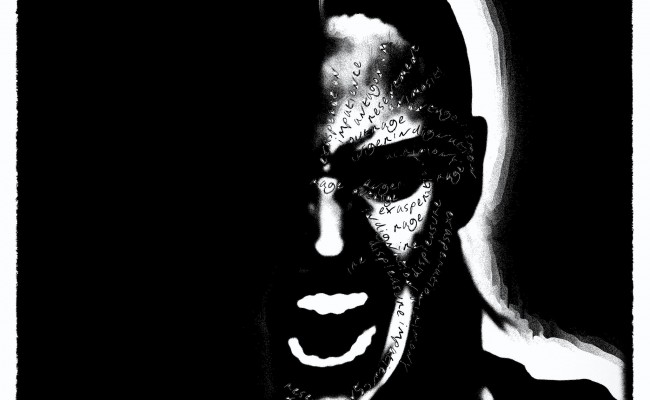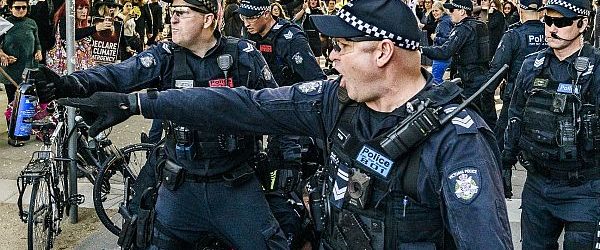‘We need to move past the “we’re screwed” narrative on climate change and ecosystem collapse. Fast. A dead world is not our destiny. Yes, the odds are against us as long as we stay on our current path. But we can and must radically change that path. We can do this, and we will.’ – Eric Holthaus
In the week since the release of the IPBES report that alerted us to the likely loss of a million species, there have been a spate of articles engaging with climate grief. Activist Rob Law wrote in the Guardian about needing to honour the pain and move through the sadness towards a sense of agency. Emily Johnson argued beautifully for the ways in which taking collective action can offset the sometimes overwhelming sense of loss.
I agree with them both. In my experience, climate action is the only known treatment for climate grief. But I find that I have also been increasingly questioning the notion of moving through or past grief, as if this trauma is something from which we can walk away.
For an artist or writer, the climate emergency offers an additional existential challenge. We’ve lost the world of realism, the ability to write anything approaching a ‘timeless’ novel. Beyond that, climate change, or anthropogenic climate disruption, or climate breakdown, is painful to look at. It is traumatic to look our own death in the eye; the understanding that we are responsible for the deaths of others and the collapse of ecosystems is very hard to integrate with a coherent sense of a moral self. But look this in the eye we must. It is absolutely the role of writers and artists to explore difficult emotions, to go into the dark places and return with something that will help. If not hope, then what?
The climate emergency, the imminent threat of ecosystem collapse, has long seemed to me to be a problem of time. It is desperately urgent, and also requires an understanding of deep time and long-term thinking. It raises unanswerable questions about how we might be accountable for the future, while demanding that we pay for the decisions of previous generations. It is haunted by questions of too-lateness, questions of inevitability, that activists are continually trying to dispel. The question of too-lateness has helped us all procrastinate for thirty years now, and it’s still not too late. These absurdities complicate the emotional terrain.
Grief is already complicated. I am worried about expressions of sadness, particularly coming from white people like myself who get to live in wealthy nations. Extinction discourse is the term anthropologists and sociologists use to describe the expressions of grief that accompanied and still accompany the attempted genocide of First Nations people, here and elsewhere. A performance of mourning the loss can be an attempt to absolve the mourner of responsibility for a crime in which they are complicit. In this context, I find myself questioning expressions of climate grief, particularly those that focus on animal life before human life. Is climate grief helping, and is it really something we can move past? These are not just questions for Australians wrestling with the legacy of frontier wars and unresolved sovereignty. We all inhabit the web of colonisation. We need only listen to Pacific leaders calling for urgent action to be reminded that this is not a problem about white people’s feelings.
The thing is, I’m not really sad any more. I’m angry. And the role of anger is so often missing from these discussions of climate grief. Why is that? Are we ashamed to admit that we are furious about this problem, even as we are complicit in it? We live with the idea that grief has stages, that we move through them towards a final, serene acceptance. But Elizabeth Kübler-Ross herself argued that this was a mistake; the experience is never linear. Perhaps, in this case, it is never finished. Increasingly, my grief and sadness come and go, but what remains, in all its ugliness, is fury.
I am furious at governments that have capitulated to coal companies. I’m furious at Exxon for predicting our current level of warming and yet continuing to burn oil. I’m furious at the politicians who are letting the Great Barrier Reef die on their watch. I’m furious at Adani – and at Equinor, the Norwegian company that wants to drill for oil in the Great Australian Bight. I’m furious that oil and gas companies have been able to use their millions to block policy change. I love animals, but I’m mostly furious about what will happen, what is happening, to people. At the Liberal MP who suggested that Pacific Islanders should move to higher ground. At the impression I have that the very wealthy on our planet, those most responsible for ecosystem collapse and climate breakdown, people who have the same or better information than we do, have struck some awful Malthusian deal – they know that a lot of people will die, and have decided that it’s worth the money.
I’m angry that Solar Reserve hasn’t been able to finance the Aurora solar thermal project in Port Augusta, for which the local community fought so hard. I’m angry that regional communities are at the mercy of distant market forces when it comes to our futures; that it so often feels that decisions are made elsewhere, way beyond our control. I’m angry that the lives of my fellow volunteer firefighters are increasingly at risk in catastrophic conditions. I’m angry that we didn’t have the climate election twenty years ago, when we could have made a just transition more carefully. I’m absolutely livid about the time we’ve wasted.
This world isn’t vanishing. It’s being demolished.
Depression has never felt to me like an absence of hope. David Foster Wallace’s word for it was horror. Mine is often like rage or disgust, a bitterness turned in. I’m not writing this because I want to tell other people how to feel, quite the opposite. As climate grief seems omnipresent and depression about the future ubiquitous, perhaps it is better not to see these as stages that can or should be overcome. If there is something on the other side of these feelings, maybe it does not have to be reasonable, and it does not have to be hope. We can still gather that grief and sadness and rage into action.
Writing makes me feel engaged in the world, and at the moment, fury is partly what keeps me coming back to my desk. But even though I believe that this is useful work, I’ll keep leaving it on Fridays, when I can, to join with climate strikers. I’ll keep mourning with Extinction Rebellion, but I won’t leave my anger behind. There is a place for that anger, not just in Saturday’s election, but in our towns and workplaces, in our schools and homes, and on the streets. For me, the other side of climate grief is climate fury.






